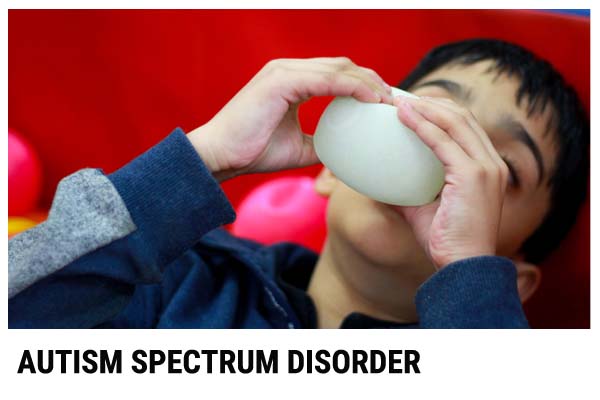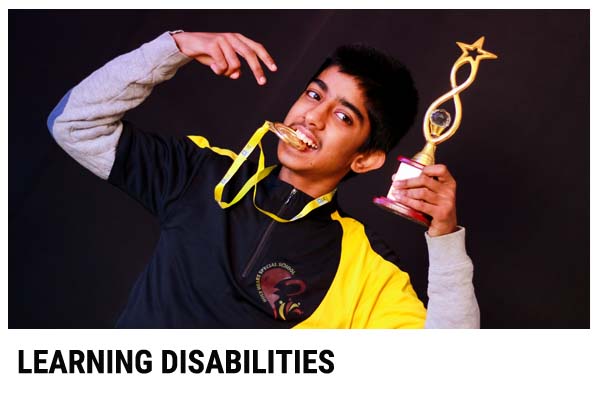Speech & Language Disability
Problems in communication and related areas such as oral motor function are referred to as Speech and Language Disability. It ranges from simple sound substitutions to the incapability to understand or use language. Some causes of speech and language disorders include hearing loss, neurological disorders, brain injury, mental retardation, drug abuse, physical impairments such as cleft lip or palate, and vocal abuse or misuse. The cause for such disability is still under research.
A child is noticeably behind his or her peers in the acquisition of speech or language skills, may have greater receptive (understanding) than expressive (speaking) language skills, but this is not always the case.
A speech disorder refers to the condition that impairs a person's capability of producing sounds to create words.
Speech disorder include:
- Stuttering - interrupts the flow of speech by disruptions such as repetitions, blocks or prolongations
- Apraxia - brain damage that impairs a person's motor skills, and it can affect any part of the body
- Dysarthria - when damage to the brain causes muscle weakness in a person's face, lips, tongue, throat, or chest
They may say "see" when they mean "ski" or they may have trouble using other sounds like "l" or "r". Listeners may have trouble understanding what someone with a speech disorder is trying to say. People with voice disorders may have difficulty with the way their voices sound.
A language disorder is an impairment in the ability to understand and/or use words in context, both verbally and nonverbally.
Some characteristics of language disorders include
- improper use of words and their meanings,
- inability to express ideas,
- inappropriate grammatical patterns,
- reduced vocabulary,
- unable to follow directions.
One or a combination of these characteristics may occur in children who are affected by language learning disabilities or developmental language delay. Children may hear or see a word but not be able to understand its meaning. They may have trouble getting others to know what they are trying to communicate.
Speech-language pathologists assist children who have communication disorders in various ways.
- SLPs provide individual therapy for the child,
- SLPs consult with the child's teacher about the most effective ways to facilitate the child's communication in the class setting,
- SLPs work closely with the family to develop goals and techniques for effective therapy in class and at home,
Technology can help children whose physical conditions make communication difficult. The use of electronic communication systems allows nonspeaking people and people with severe physical disabilities to engage in the give and take of shared thought.









